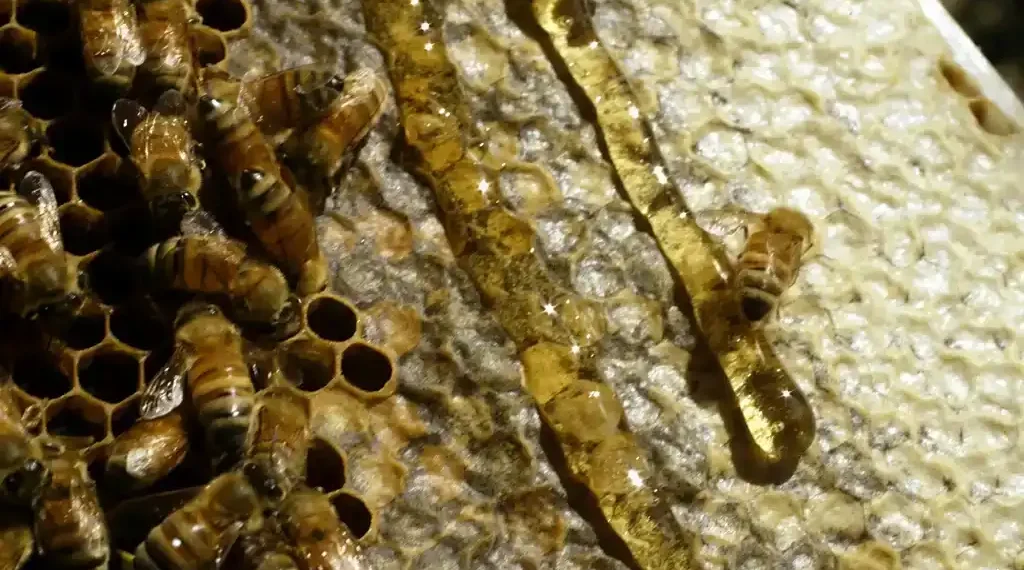Why Honey Doesn’t Spoil: The Science, History, and Secrets Behind Its Remarkable Shelf Life
If you’ve ever discovered an old jar of honey tucked away in your pantry—crystallized, perhaps, but still perfectly edible—you’re not alone in wondering: Why doesn’t honey ever go bad?
It’s one of the few foods on Earth with an almost mythical resistance to time. Archaeologists have found pots of honey in ancient Egyptian tombs, sealed for over 3,000 years, and astonishingly, the honey was still safe to eat. This isn’t folklore—it’s a scientific reality. Honey is not only delicious but chemically engineered by nature to last virtually forever.
Let’s explore why.
The Chemistry That Defies Time
To understand honey’s longevity, it helps to know why most foods spoil. Bacteria, yeasts, and molds are the culprits behind food decay. They thrive in environments that are:
- Moist
- Moderately acidic or neutral in pH
- Rich in nutrients (like sugar or protein)
- Exposed to oxygen
Honey, on the surface, seems like it should be perfect microbe food—it’s sugar-rich, after all. But it breaks almost all of the other rules that microbes love:
- Low moisture: Ripe honey contains just 15–18% water, far too little for most bacteria or fungi to grow.
- High sugar concentration: The osmotic pressure created by honey’s sugar content literally pulls water out of microbial cells, dehydrating and killing them.
- Acidity: Honey has a pH between 3.2 and 4.5, which is highly acidic—another hostile environment for microbes.
- Hydrogen peroxide: As part of the honey-making process, bees produce a small amount of hydrogen peroxide, a natural antimicrobial agent.
The result? Honey is one of the most inhospitable environments for microbial life on Earth.
How Bees Make It So Powerful
Honey doesn’t start off shelf-stable. When bees collect nectar from flowers, it’s a watery solution—about 70–80% water and 20–30% sugar. Left alone, this would spoil in no time. But bees aren’t just gatherers—they’re master processors.
Inside the hive, bees go to work:
- They regurgitate the nectar repeatedly, exposing it to enzymes like glucose oxidase, which helps convert sugars and produces gluconic acid and hydrogen peroxide.
- They fan the honeycomb with their wings, reducing water content through evaporation.
- They store the concentrated liquid in wax cells and seal them with beeswax to protect against moisture and contaminants.
What results is an incredibly stable substance, nearly impossible for bacteria to colonize.
History’s Oldest Preservative
Honey’s longevity has been recognized for millennia. Ancient civilizations didn’t need a microscope to know it was special.
- Egyptians used honey in religious offerings, burial rituals, and embalming. Tombs often included honey pots for the afterlife.
- Greeks and Romans revered honey as a symbol of health and healing. Hippocrates, the “father of medicine,” prescribed it for fevers, wounds, and digestive issues.
- Ayurvedic medicine in India described honey as a healing tonic more than 4,000 years ago.
These cultures may not have known the biochemistry behind honey’s preservative powers, but they recognized its practical value—and its near-magical shelf life.
When Honey Can Go Bad (Sort Of)
Despite its strengths, honey isn’t invincible. It can absorb moisture from the air over time, especially if left unsealed. If the moisture content rises above 20%, fermentation may begin. Also, contamination from dirty utensils or repeated exposure to air and heat can introduce microbes or degrade quality.
Crystallization, which often leads people to believe honey has spoiled, is actually natural and harmless. It occurs when glucose precipitates out of the supersaturated solution. Gently warming the jar in hot water can restore it to its liquid state.
And if you’re wondering—yes, you can still eat crystallized honey. It’s perfect for baking, spreading, or stirring into tea.
A Modern Twist: Mead and Culinary Uses
Interestingly, if you want honey to spoil (in a controlled way), you can do that too. Add water and yeast, and you get mead—a fermented honey wine that’s been enjoyed since ancient times. Mead-making dates back to at least 7000 BC in China and has recently seen a resurgence among craft brewers and foodies.
Honey is also used as a preservative in its own right. It’s been used to preserve fruits and nuts, and in some cultures, it’s even poured over meats. Its natural antibacterial and antifungal properties make it an excellent alternative to processed sugar in cooking and skincare.
Nature’s Perfect Preservative
In a world filled with expiration dates and food waste, honey remains one of nature’s most remarkable exceptions. Its chemistry is uniquely suited to keeping itself—and anything it touches—protected from the march of time.
From the hives of hardworking bees to the shelves of your kitchen, honey is more than a sweetener. It’s a testament to the power of natural design, a biological feat of preservation, and a jar of history that never seems to expire.
Source; BBC – The chemical secrets that help keep honey fresh for so long
This article was rewritten by JournosNews.com based on verified reporting from trusted sources. The content has been independently reviewed, fact-checked, and edited for accuracy, neutrality, tone, and global readability in accordance with Google News and AdSense standards.
All opinions, quotes, or statements from contributors, experts, or sourced organizations do not necessarily reflect the views of JournosNews.com. JournosNews.com maintains full editorial independence from any external funders, sponsors, or organizations.
Stay informed with JournosNews.com — your trusted source for verified global reporting and in-depth analysis. Follow us on Google News, BlueSky, and X for real-time updates.














